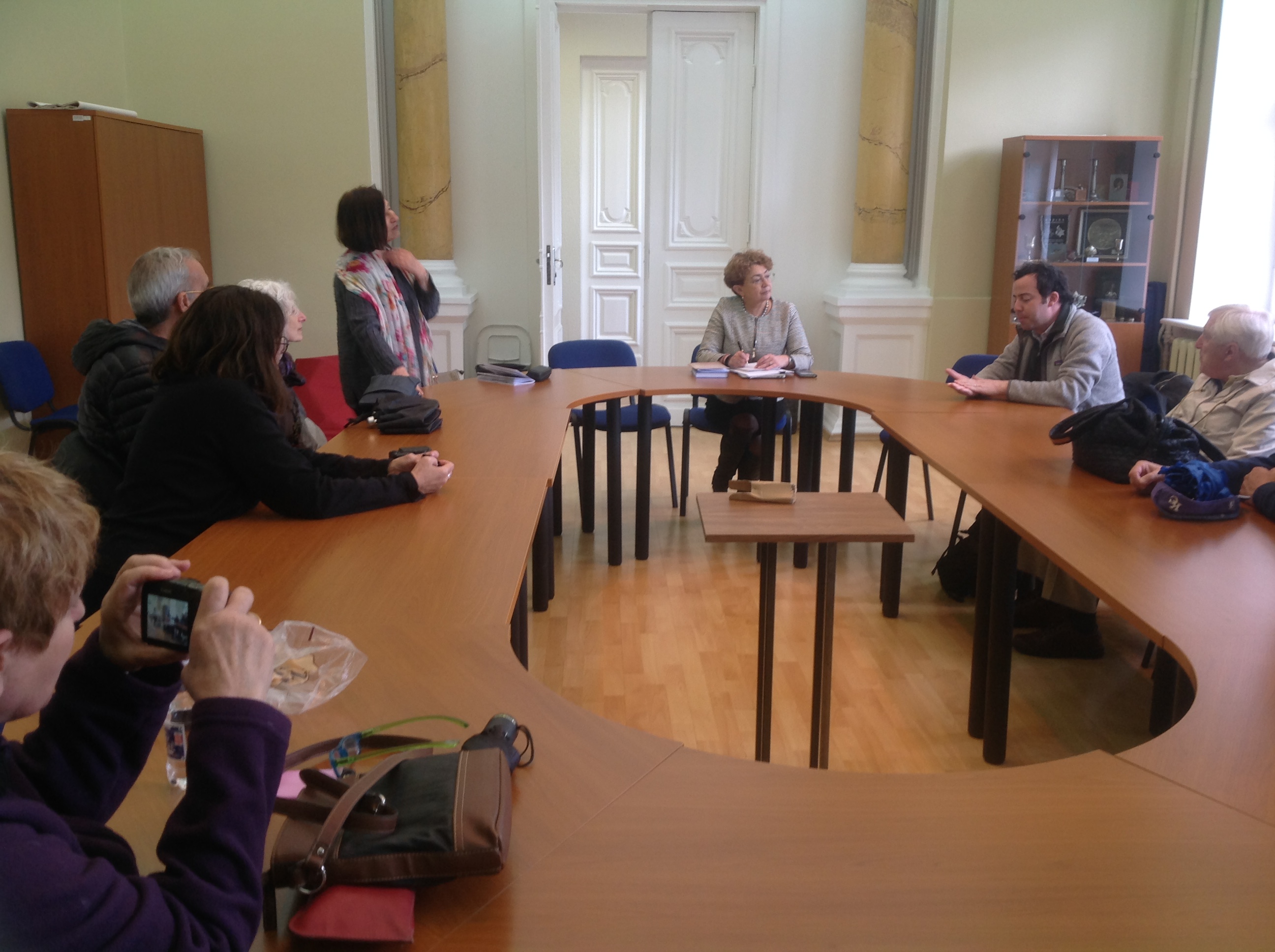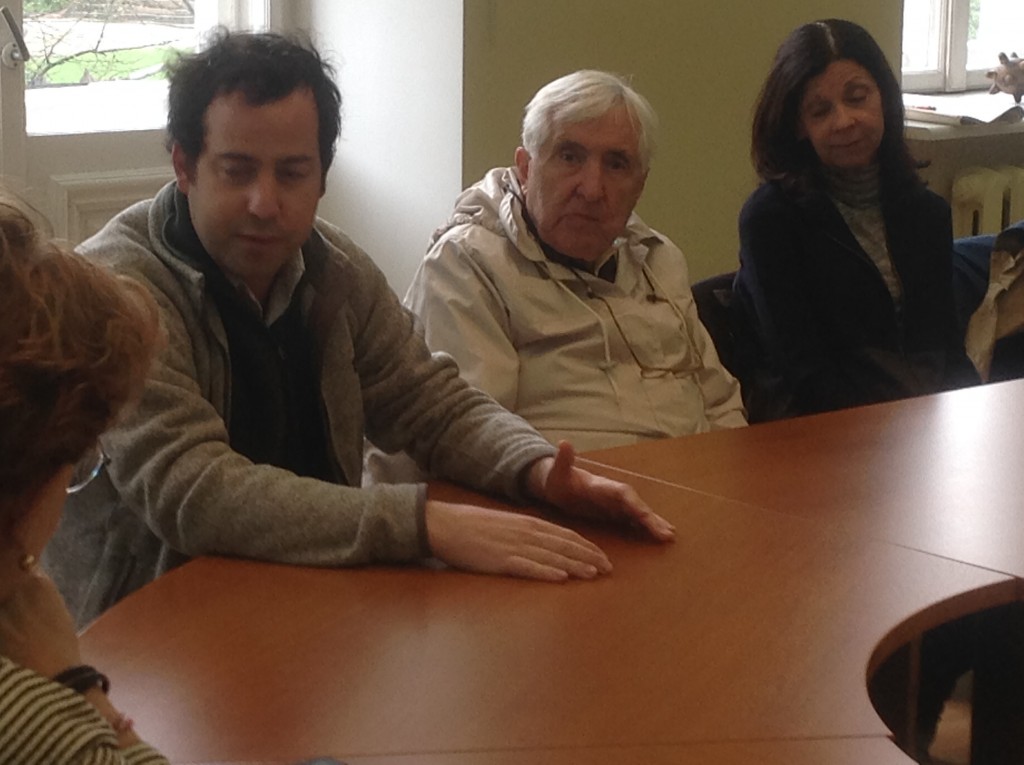Lietuvos žydų (litvakų) bendruomenėje lankėsi Yiddishkayt grupė. Tai jidiš kultūros ir švietimo organizacija, įsikūrusi Los Andžele, Kalifornijoje. Yiddishkayt pavadinimas susijęs su kultūros samprata, nes yiddishkayt reikšmė (pažodžiui “žydiškumas” arba “Yiddishness). Organizacija siekia” įkvėpti dabarties ir ateities kartoms susidomėjimą žydų bendruomenių gyvenimu Europoje.
Nuo įkūrimo 1995 metais, Yiddishkayt tapo Amerikoje žinoma organizacija, skirta jidiš kultūrai, jos nariai tiki, kad Rytų Europos žydų kultūra, kalba, menas ir pasaulėžiūra turėjo ir tebeturi labai svarbų vaidmenį šiuolaikiniame pasaulyje.
Vilniuje viešėjusiai grupei vadovavo Yiddishkayt direktorius Dr. Robert Adler Peckerar, kuris pasakojo, kad grupė į Lietuvą atvyko iš Lenkijos, jie šioje kelionėje domisi LDK žydų gyvenimu ir kultūra. Svečius sutiko LŽB pirmininkė Faina Kukliansky ir SC bei religinės bendruomenės vadovas Simas Levinas, kurie atsakė į įvairius klausimus apie žydų istoriją ir jos saugojimą, bendruomenės dabartį ir planus. Robert Adler Peckerar pasakojo, kad Yiddishkayt nariai mano, jog jidiš kultūros lobius reikia saugoti, puoselėti ir supažindinti savo bendrapiliečius su palikimo įvairove . Organizacijos nuomone, jidiš kultūros istorijos pamokos dabar yra svarbesnės nei bet kada, nes jos kaip tiltas jungia asmenines istorijas su globalizuoto pasaulio perkeltųjų, emigravusiųjų istorijomis ir siūlo bendravimo kultūros pavyzdžius. Žydai savo gyvenimu įrodė, kad skirtingų tautybių, kultūros vertybių, religijų žmonės gali būti kartu ir kokį baisų pavojų sukelia izoliuotumas bei netolerancija.
Nuotraukos iš susitikimo su Yiddishkayt grupe.
Yiddishkayt is the premier Yiddish cultural and educational center in Los Angeles, presenting a millennium of European Jewish life to new generations — creatively and inclusively and outside the confines of academic and religious institutions.
yidishkayt in quasi-phonetic transcription)[1] literally means “Jewishness”, i. e. “a Jewish way of life”, in the Yiddish languageWe believe that yiddishkayt — the culture, language, art, and worldviews of Eastern European Jews, as they lived in Europe and in the places they settled — has a crucial role to play in our world today.
Often forgotten, obscured, or denigrated, Yiddish culture offers a much-needed model of diverse people coming together and rejecting parochialism, of fusion, collective creativity, and critical engagement.
Yiddishkayt is a cultural incubator. We craft hands-on, immersive experiences creatively, inclusively, and outside the confines of academic and religious institutions, making this past present and mapping out the relationships that bring humanity closer together across the divides of national, religious, and ethnic borders.
Yiddishkayt aims…
• to preserve, cultivate, and broadcast the treasures of Yiddish, the diversity of yiddishkayt’s legacy, and the progressive tradition of Jewish European and immigrant life and explore this cultural and moral heritage in the face of the disappearance and neglect of the historical, lived experience of European Yiddish culture;
• to show how the lessons of Yiddish cultural history are more important than ever and demonstrate that learning about shared cultural treasures opens us up to the riches, not only of our own past, but also of the cultures around us;
• to inspire current and future generations with the artists, writers, musicians, performers, filmmakers, philosophers, and social justice activists whose yiddishkayt — their particular form of critical and compassionate engagement with humanity — emerged from the Jewish communities of Europe as they developed in constant contact with their non-Jewish neighbors;
• to teach this culture as a crucial bridge that connects personal histories to the present globalized world of displaced people, immigrants, and exiles;
• to educate about Jewish culture in the most pluralistic way possible in order to understand what history teaches us about being a mentsh—a compassionate human being—in an often hostile world.
Helix teaches that no culture or history can be understood without its local context. The creative coexistence of Jews with their neighbors demonstrates precisely this. Jewish culture is not examined as particular cultural property or as a way to turn inward, but rather as an opportunity to see how people of differing nationalities, languages, and religions can create together. Visiting these places where Jews once lived — but live no longer — also shows, in the most palpable way, the terrible dangers of insularity and intolerance.
Helix 2015 is open to all full-time students enrolled during the 2014–2015 academic year at an accredited degree-granting college or university. As part of the program’s commitment to teaching Jewish culture in a world-historical context, it is open to students of all backgrounds who wish to explore this culture in the most creative, direct, and personal way possible — and regardless of financial status.



